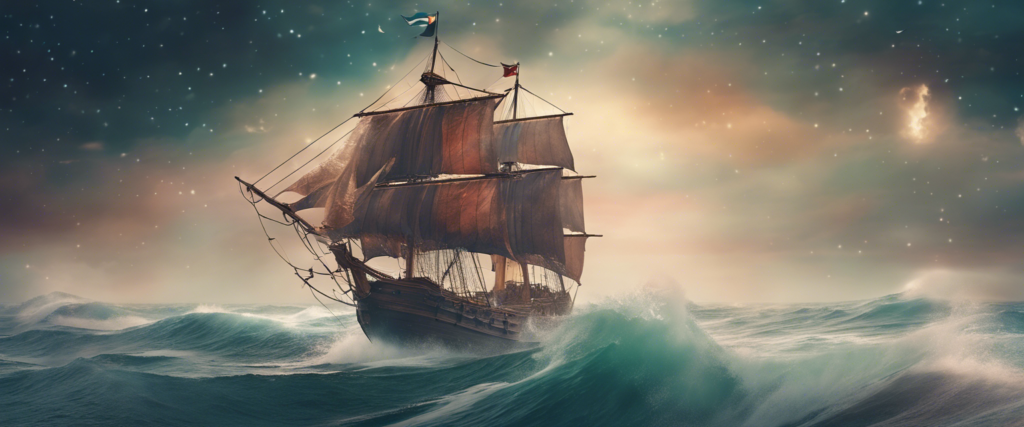Portugal is a proud country. At the westernmost expanse of the European continent, the Portuguese were among the first to look out at the Atlantic in wonder and build ships to weather the seas and sail west and south into the unknown. They discovered Madeira, the Azores, Cape Verde, islands all to which it took days to sail, in a time when most of the world believed sailing west from Europe was a trip to your doom: either into an impossibly long voyage toward Asia, or even off of an abrupt end to a flat and finite earth. Its maritime history and cultural resilience have made it stand out impressively amove all its neighbors.
Challenging the Unknown
The Portuguese challenged this idea, they began making ships designed to sail for months into the sea, taking men where no one had gone before, exploring places which were believed to contain only savages or were too harsh for humans to endure. For this curiosity in defying common beliefs of the day, men like Bartolomeu Dias and Vasco de Gama sailed into the southern sea and made voyages thought to be impossible.
They proved that the world possessed a southern hemisphere which an adept sailor could venture down into and go east to the land of spices, gold, and silk. To the chagrin of wealthy Venetian merchants, the Portuguese proved that the Silk Road was an unnecessary venture when ships could sail around the Cape of Good Hope to ports of call like Mumbai, Calcutta, and Shanghai.
Today, Portugal is a far cry from its former self. Not that its people have changed. That spirit of the Portuguesa, the one that inspired the likes of de Gama, Magellan, and Dias, you can still see it in the them. It was in the voice of the girl working at Quinta do Crasto, who explained that Portugal is retaking their wine industry from the old days of the British dominated port trade, and how in just a few decades Portuguese wine will be among the best in the world; it was in the eyes of the Rodrigo the guy who led us around Lisbon we the aptly named We Hate Tourism Tours, who took so much pride in everything Portuguese, but had not one positive thing to say of his government; or the bartender who politely informed me that you shouldn’t ever lead with Spanish when speaking to a Portuguesa, after all, they have a language of their own. Over and over again, I heard a Portuguesa lament over their ineffective leaders. How their economy is in stagnation, unemployment staggeringly high, and how decent hardworking people nearly starve on the streets.
From Prosperity to Parking Lot and Reclamation
Today Portugal joins its once mighty neighbor Spain as one of the most languishing economies of Europe. If nothing else, it was all sad to me. I remember standing in the Plaça de Comercio in Lisbon, to this day one of the largest public squares in all of Europe with one long side on the banks of the Rio Tejo, and an enormous bronze statue of King Jose I on horseback in its center. I stood there looking out at the water picturing massive caravels moored at the docks, unloading nutmeg, pepper, cardamom, and cloves – just grocery store commodities today, but were luxuries that made the Portuguese the most privileged people of Europe in the 16th century. This plaza was converted to a parking lot in the 1950’s and has only recently been reclaimed as a monument to Portugal’s past. Today tourists buzz around the square and it has the same feel of any other big European plaza, if not for the conspicuously empty side facing the water which once drove Portugal’s economy.
I left Portugal with a sense that its people had a bad case of ‘small dog syndrome,’ overshadowed by its much larger Iberian neighbor which despite its own economic woes seems to dominate it these days in every way. But I’ve realized that this is oversimplified. In a country which has played such a dominant part in world history, it must be ashamedly humbling to make headlines these days only for being the ‘P’ in PIGS (the convenient porcine mnemonic device referring to the worst economies of Europe). The golden age of Portugal is long in its past, but when you stand on its western cliffs and look out on the ocean, when you consider the innovations its people brought to this world which are taken for granted today – ships that could sail across oceans and into the wind, maritime devices which could pinpoint your location simply by looking at the sun – it’s easy to picture the time in which it was great.
I’ll admit, I’m much more taken by Spain than Portugal. We even escaped to Spain for one night when we were close as if to take a breath of fresh air away from the unfamiliar accents and weird ‘ç’ and ‘x’ pronunciations on road signs we didn’t understand and often got us (me) lost. But I’ve never met a person that went to Portugal or has Portuguese roots that didn’t just spill out this Portuguese pride in every word they spoke about the place – and it’s worth the trip because you can feel it when you’re there. It’s no longer dominating the world economy like it was centuries ago, but in many ways its people still live like they do… even so, they manage to maintain a laid back demeanor which is enviable in today’s world.
No, you won’t find a Portuguesa donning a cap demanding that Portugal be made great again, I think they are at peace that those days are over, but what you will find is a sense of nationalism, pride and unity which was borne out of necessity over the centuries as its people stood cut off from Europe, looking west out into the ocean.


